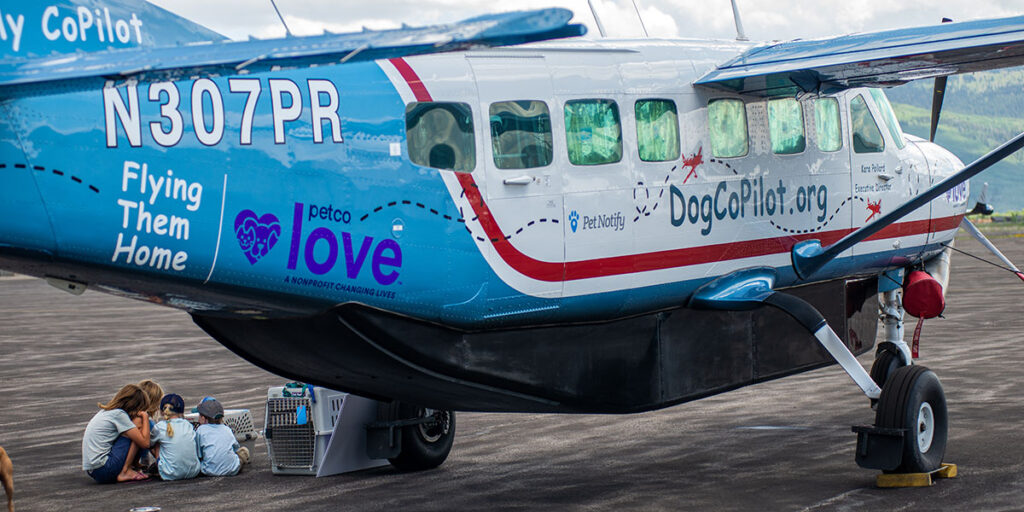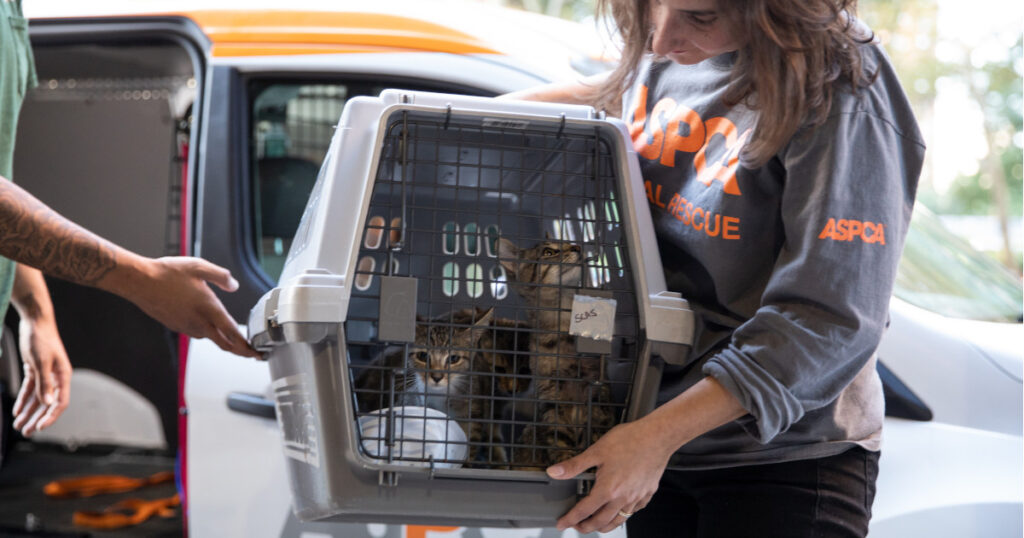The ASPCA is collaborating with Petco Love to Transport Pets to Safety During Hurricane

The ASPCA® (The American Society for the Prevention of Cruelty to Animals®) is assisting local shelters along the Gulf Coast in the evacuation of more than 150 homeless animals in the path of Hurricane Ida. At the request of Galveston County Animal Services, the ASPCA relocated 28 homeless cats and kittens to SPCA of Texas on Friday, and today, is helping to relocate 23 dogs from Terrebonne Parish Animal Shelter in Louisiana to Tri-City Animal Shelter in Texas. Additionally, the ASPCA is collaborating with Petco Love to support Brandywine SPCA and Wings of Rescue by sponsoring a flight that will transport approximately 110 cats and dogs from Tangipahoa Parish to Brandywine and Massachusetts SPCA. All of the animals transported out of impacted communities in advance of the storm are unowned and will be made available for adoption.
Hurricane Ida is expected to bring heavy rainfall, storm surge and high winds throughout the next several days as it quickly approaches the Gulf Coast. The ASPCA disaster response team is in communications with local and state emergency response agencies and stands ready to assist displaced animals and pet owners upon request.
“Evacuating animals in the path of disasters is a lifesaving aspect of emergency response efforts because it gives homeless animals a second chance while freeing up resources for potentially displaced pets in impacted communities,” said Susan Anderson, Director of Disaster Response for the ASPCA National Field Response Team. “Our assistance to animal shelters in Texas and Louisiana will help move vulnerable animals to safety in advance of the storm, and we stand ready to assist animals in communities impacted by Hurricane Ida.”

The ASPCA deploys nationwide to assist in relocation, search-and-rescue, sheltering, and reunification efforts during disaster situations including wildfires, tornadoes, and floods. In addition, they work closely with local agencies across the country to help enhance their animal response capabilities through grants and training opportunities.
As we approach National Preparedness Month in September, the ASPCA is sharing lifesaving expert tips on keeping animals safe during a disaster and urging residents in the pathway of approaching hurricanes to include pets in their evacuation plans.
The ASPCA advises pet owners to take the following steps:
- If you evacuate, take your pets with you. Never leave your pets behind or tether them to poles or trees, which prevents them from escaping high waters and getting to safe areas.
- In the event of flooding, go to the highest location in your home or a room that has access to counters or high shelves where your animals can take shelter.
- Make sure all pets are wearing identification tags with up-to-date contact information. The ASPCA also recommends checking microchip registration information to ensure that contact information is up to date as well.
- Create a portable pet emergency kit with essential items including medical records, water, water bowls, pet food and your pet’s medications.
- Choose a designated caregiver, such as a friend or relative outside the evacuation zone, who can take care of your pet in the event you are unable.
For more information on how to incorporate your pet into your disaster preparedness plans, visit aspca.org/disasterprep.
About the ASPCA®
Founded in 1866, the ASPCA® (American Society for the Prevention of Cruelty to Animals®) was the first animal welfare organization in North America and continues to serve as the nation’s leading voice for animals. More than two million supporters strong, the ASPCA is committed to its mission of providing effective means for the prevention of cruelty to animals throughout the United States. As a 501(c)(3) not-for-profit corporation, the ASPCA is a national leader in the areas of anti-cruelty, community outreach and animal health services. For more information, please visit www.ASPCA.org, and be sure to follow the ASPCA on Facebook, Twitter, and Instagram.
SOURCE ASPCA



